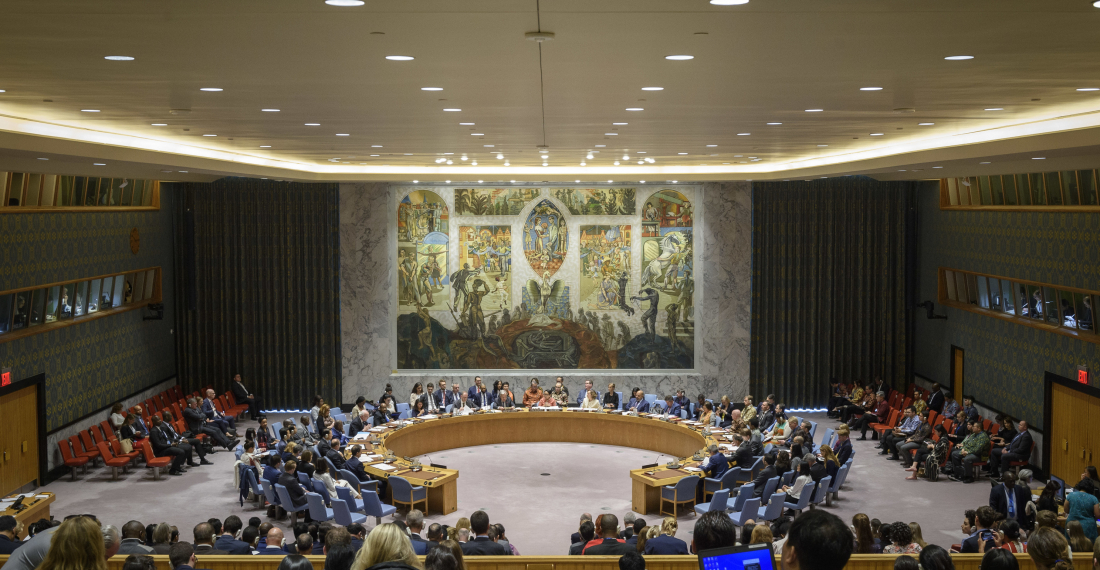The United Nations Security Council on Wednesday (16 August) met in open-session to discuss the situation around the Lachin Corridor. Azerbaijan has established check points on the corridor and has restricted movement, whilst offering alternative routes to Karabakh going through Azerbaijani territory. Armenia says the blockade is causing a humanitarian crisis.
Armenia requested the meeting in an 11 August letter to the Council invoking Article 35 of the UN Charter. Under Article 35 (1), any UN member state “may bring any dispute, or any situation referred to in Article 34 [that is, one that may lead to international friction or give rise to a dispute] to the attention of the Security Council or of the General Assembly”. OCHA’s Director of Operations and Advocacy Edem Wosornu briefed the Council at the start of the meeting. Apart from the 15 members of the Security Council, Armenia and Azerbaijan also attended and spoke at the meeting, as did the representatives of Turkey and of the European Union. Armenian foreign minister, Ararat Mirzoyan, personally attended the meeting, whilst Azerbaijan was represented by its permanent Delegate to the UN.
The meeting was chaired by the United States, which has the current Chair of the council. This moves monthly by rotation according to alphabetical order.
All fifteen members of the Security Council spoke, with many highlighting the need for humanitarian aid to flow unimpeded to Nagorno-Karabakh; most emphasising the importance of territorial integrity, and all calling for progress in the peace negotiations for the region to move on from the current impasse.
The meeting ended without the Council taking any decision.
commonspace.eu political editor said in a comment that there are two important take-aways from Wednesday's meeting: The first, for Azerbaijan, is that, regardless of the fact that Nagorno-Karabakh is recognised as part of Azerbaijan the mood in the international community is one of concern at how Azerbaijan is treating the Armenian community, and will treat it in the future. The handling of the Lachin corridor is by many seen as a test of things to come. Azerbaijan needs a much more nuanced and sophisticated approach on this issue if it is avoid a head on collision with the international community sooner rather than later; The second take-away, for Armenia, is that the international community is currently neither willing, nor probably even able, to put the kind of pressure on Azerbaijan that Armenia expects, and that the solution is progress in the Armenia-Azerbaijan negotiations. For the Armenian population of Nagorno-Karabakh the message from many members of the Security Council was clear: talk to Baku.
There is a bigger role for the UN Security Council in the future. Any future Armenia-Azerbaijan peace agreement should be underpinned by a UN Security Council resolution. But we are not there yet.







